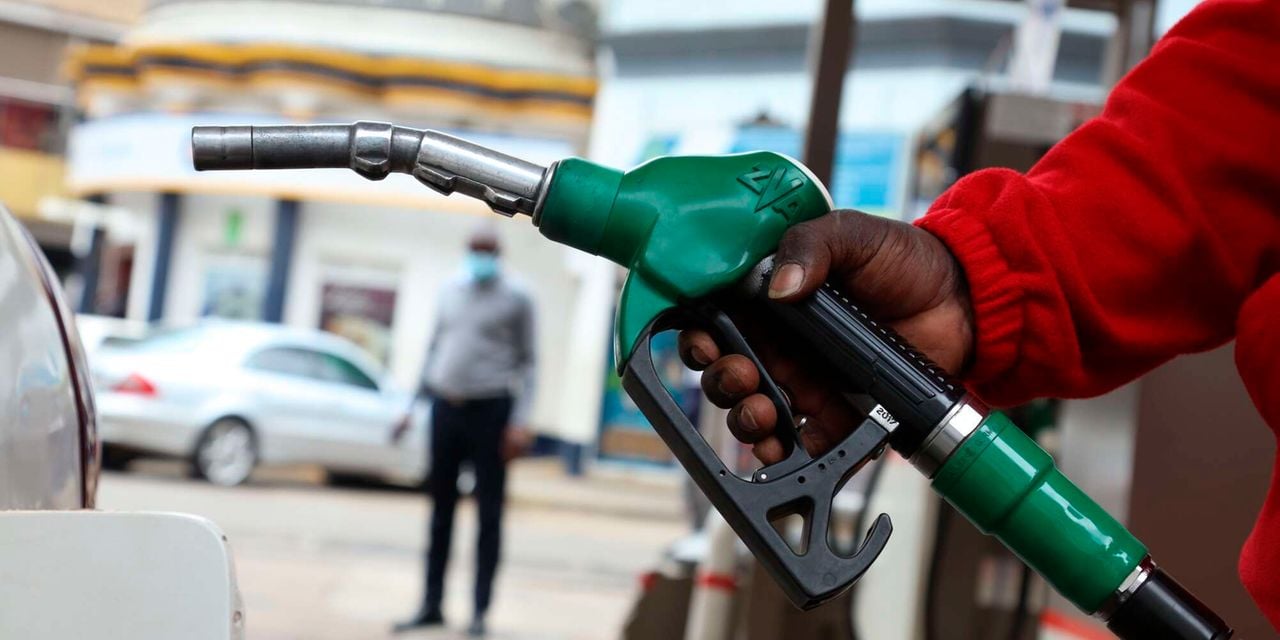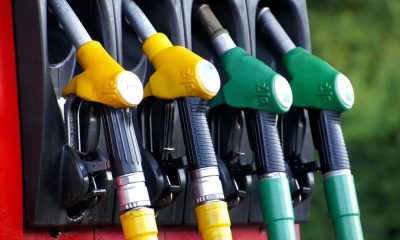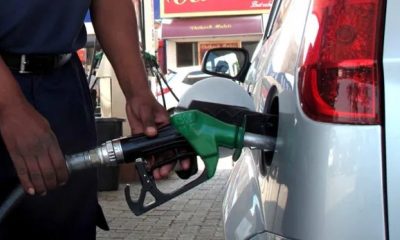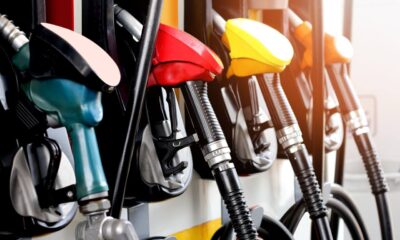Economy
Why Fuel Prices Are Set To Go Up Again

The state has tripled the petroleum regulatory levy on every litre of fuel purchased.
The Ministry of Energy last week increased the levy from Sh0.25 to Sh0.75 per litre, as revealed by the recently published Energy (Energy and Petroleum Regulatory Authority Petroleum Levy) Regulations, 2024.
The increase, effective February 15, 2024, aims to fund the operations of the Energy and Petroleum Regulatory Authority (EPRA).
Energy Cabinet Secretary Davis Chirchir emphasised the need for the adjustment, stating, “These regulations shall… come into operation on February 15, 2024,” while also revoking the Energy Act (Petroleum Regulation Levy) Order, 2018.
The Petroleum Regulatory Levy is just one of nine taxes and levies imposed on fuel, including excise duty, road maintenance levy, petroleum development levy, railway development levy, anti-adulteration levy, merchant shipping levy, import declaration fee, and value-added tax (VAT).
Interestingly, the move went somewhat unnoticed, as overall fuel prices saw a reduction of Sh1 per litre. However, this reduction may not provide much relief to consumers, given the significant increase in the Petroleum Regulatory Levy.
First review in 6 years
This marks the first review of the levy in six years, with the last revision occurring in June 2018 under then-Petroleum Cabinet Secretary John Munyes.
The petroleum levy accounts for a substantial 80.7 per cent of EPRA’s total revenue, contributing Sh1.21 billion out of Sh1.51 billion in revenue during the year to June 2021.
Kenyans, who consumed 4.649 billion litres of fuel in 2023, will now face higher costs at the pump due to the increased levy.
Despite EPRA reducing fuel prices last week to Sh195.47 per litre of diesel and Sh206.36 per litre of super petrol in Nairobi, further hikes could be on the horizon if proposals by the Kenya Roads Board (KRB) come to fruition.
KRB’s latest strategic plan suggests raising the Road Maintenance Fuel Levy (RMFL) by Sh5 per litre. Rising costs of maintaining roads, influenced by expensive fuel prices and escalating costs of road construction materials like tar and bitumen, are driving the proposed increase.
The RMFL, currently set at Sh18 per litre of petrol and diesel, allocates Sh3 to an annuity fund and the remaining balance to road maintenance, rehabilitation, and development. KRB data indicates a substantial increase in the periodic maintenance cost per kilometre by the Kenya National Highways Authority (KeNHA) from Sh3.94 million to Sh6.06 million in the current fiscal year.
Explaining the rationale behind the proposed increase, KRB noted, “There has been an increase in periodic maintenance costs by about 35 per cent attributable to the uptake of roads with failed payments and an increase in the price of construction materials mainly due to the rise in fuel prices.”
Over the past five years (2018–2022), KRB has spent Sh309.74 billion on road maintenance, rehabilitation, and development programmes, excluding the Road Annuity Fund. Various entities received the funds, with KeNHA getting Sh128.37 billion, KeRRA receiving Sh84.95 billion, KURA securing Sh35.24 billion, KWS obtaining Sh31.36 billion, and county governments receiving Sh26.69 billion.
Kenya Insights allows guest blogging, if you want to be published on Kenya’s most authoritative and accurate blog, have an expose, news TIPS, story angles, human interest stories, drop us an email on [email protected] or via Telegram
-

 Grapevine1 week ago
Grapevine1 week agoAlleged Male Lover Claims His Life Is in Danger, Leaks Screenshots and Private Videos Linking SportPesa CEO Ronald Karauri
-

 Lifestyle2 weeks ago
Lifestyle2 weeks agoThe General’s Fall: From Barracks To Bankruptcy As Illness Ravages Karangi’s Memory And Empire
-

 Grapevine6 days ago
Grapevine6 days agoRussian Man’s Secret Sex Recordings Ignite Fury as Questions Mount Over Consent and Easy Pick-Ups in Nairobi
-

 Investigations3 days ago
Investigations3 days agoMulti-Million Dollar Fraud: Three Kenyans Face US Extradition in Massive Cybercrime Conspiracy
-

 Investigations2 weeks ago
Investigations2 weeks agoEpstein’s Girlfriend Ghislaine Maxwell Frequently Visited Kenya As Files Reveal Local Secret Links With The Underage Sex Trafficking Ring
-

 News2 weeks ago
News2 weeks agoState Agency Exposes Five Top Names Linked To Poor Building Approvals In Nairobi, Recommends Dismissal After City Hall Probe
-

 Economy2 days ago
Economy2 days agoIran Demands Arrest, Prosecution Of Kenya’s Cup of Joe Director Director Over Sh2.6 Billion Tea Fraud
-

 Business1 week ago
Business1 week agoM-Gas Pursues Carbon Credit Billions as Koko Networks Wreckage Exposes Market’s Dark Underbelly




























